

Tao Te Ching
Search Sages
Enter all or part of an sage's name or biography in the fields below, then press tab or enter to filter the list of Authors. Click the headings Name or Biography to sort by that column. Diacritics are ignored when searching.
Click on the author's name to go to their page.
| Author Name | Biography |
|---|---|
| Commodus | 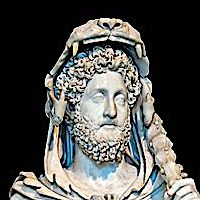 Commodus CommodusHow ironic that we still consider Marcus Aurelius such a profound teacher, such an inspirational example of a philosopher/king almost 2000 years after his life while his son gives such terrible evidence of his being such a failure as an educator and father. While Marcus symbolizes the height of Roman culture, Commodus marks a steep decline, the beginning of the end. He constantly drank, gambled, wasted public funds, and maintained a harem that included 300 girls as well as 300 boys. Described as "more bestial than any beast," he abandoned any vestige of ethics or integrity. Cruelty dominated his approach as he watched the society around him fall apart. |
| Condivi | 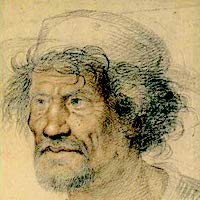 Condivi Condivi“Official” Michelangelo Biographer Ascanio Condivi |
| Confucius | 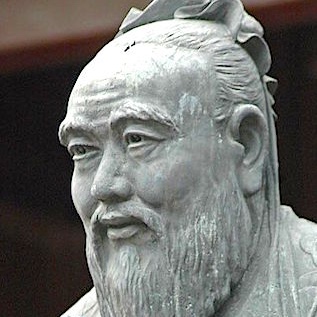 Confucius ConfuciusHistory's most influential "failure" Probably the most influential failure in history, Confucius wanted to be a political advisor, found only one job doing that but unsuccessfully as was the rest of his life attempts at being an administrator. Early Confucian scholars were killed and their books burned. After he died though, his teaching shaped the next 2300 years of Chinese educational, governmental, and cultural practice. He was the first in recorded history to set up an educational program to train people for governmental roles. Calling himself a "transmitter who invented nothing,” his tradition did not become a religion but instead a non-theistic, humanistic understanding of secular morality that stressed having rulers appointed based on merit rather than birth, rule by personal example rather than fiat, acting out of awareness and experience rather than only following rules. |
| Copernicus, Nicolaus | 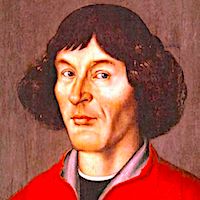 Copernicus, Nicolaus Copernicus, NicolausCreator of one of history's greatest revolutions From our point of view, such a simple and obvious proposition—that the Earth rotates around the Sun. At his time and place in history, however, Copernicus created one of the most far-reaching revolutions of understanding in the history of the world. Mathematician, astronomer, physician, translator, diplomat, economist, polyglot and polymath; his celestial theory threatened the powerful Catholic Church so much it was considered an atheistic blasphemy and because Galileo agreed with it, he was incarcerated for the last nine years of his life. An early humanist, he also developed an important economic concept and theory of money, translated poems from Greek to Latin, and even became an effective and influential government official. |
| Cosimo de’ Medici | 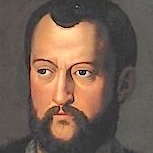 Cosimo de’ Medici Cosimo de’ MediciInheritor of a huge fortune; wandering bibliophile; owner of banks, businesses, farms, and factories; friend to cardinals and sultans alike; founder and “first among equals” leader of a political dynasty that helped begin and extend the Renaissance; Cosimo de’ Medici did what the rich need to do today: use their wealth to benefit the world instead of only themselves. In his own and other countries he strongly supported public works, charities, and libraries; funded the work of poets, artists, scholars and philosophers; established an academy for the study of Plato and launched the Renaissance revolution of philosophy over the Middle Ages’ scholasticism - the sense over the words. |
| Crosby Stills & Nash | 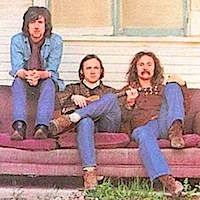 Crosby Stills & Nash Crosby Stills & Nash |
| Dalai Lama XIV | 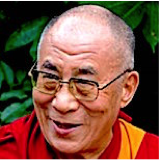 Dalai Lama XIV Dalai Lama XIVBorn to a remote small farming family on a straw mat in a cowshed, the Dalai Lama became the world’s most popular political leader. He received the Nobel Peace Prize, the highest US honor of Congressional Gold Medal, the Freedom Medal, and is one of only 6 people given Honorary Citizenship by the Canadian government. Traveling the world for decades, he became the most famous voice for the environment, women's rights, non-violence, fair economics, and interfaith dialogue as well as the world’s main influence for the preservation of Tibetan culture. Promoting a Buddhist approach to science, economics, and politics; he has traveled to more than 67 countries and written more than 110 books. |
| Dana Milbank | 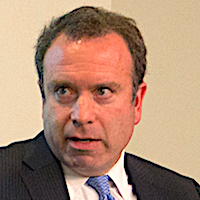 Dana Milbank Dana MilbankAuthor, and Washington Post columnist |
| Dane Rudhyar | 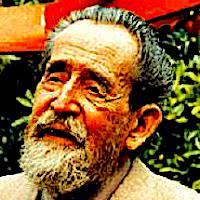 Dane Rudhyar Dane RudhyarAgent of cultural evolution Modernist composer, transcendental artist, science fiction writer, philosopher, and founder of transpersonal astrology; Rudhyar thought of himself as a “seed” spreading a new era of cultural evolution. Prolifically creative his entire life, scholars consider his most fruitful period beginning when he was 74. During the next 10 years, he published several books a year including many insightful works on planetary consciousness. After performing one of the first original polytonal orchestral pieces in the United States, he met a Zen teacher and began studying Eastern philosophy. This led to an emersion in Theosophy, Jungian psychology, humanistic astrology, and the New Age movement. Living and teaching in 1960’s San Francisco, he became a major influence on the counter culture. He helped transmute much of the time’s superstitious allurements into symbolic interpretations and psychological insights. |
| Daniel J. Boorstin | 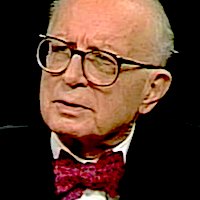 Daniel J. Boorstin Daniel J. Boorstin American intellectual Paul Revere “An intellectual Paul Revere,” American historian, US Congressional Librarian, Rhodes Scholar, and Pulitzer Prize winner; Boorstin became a Communist Party member when young, a prominent conservative in later life. Promoting the "consensus school" of history, he praised entrepreneurs and inventors, criticized conformity, bureaucracy, slavery to tradition, and an historical emphasis on class conflict. On a parallel track with Marshall McLuhan he praised, analyzed, and warned about the unintended consequences and social upheaval that inevitably arises from new technology. With self-effacing insight, he looked deeply into American culture both praising and criticizing aspects of this unprecedented historical experiment. |
| Daniel Ladinsky | 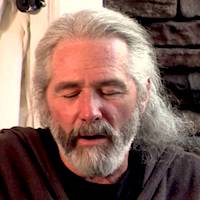 Daniel Ladinsky Daniel Ladinsky Wisdom lineage poetic channeler American poet, translator, and interpreter; Ladinsky lived for 20 years in a Meher Baba spiritual community in India while working in free rural health clinics. Basing his work mainly on Rumi and Hafiz, he describes them not as translations but as interpretations and renderings faithful to the spirit though not to the words of these original sources. Frequently licensed and quoted by Christian, Buddhist, Hindu, Jewish, Muslim and Sufi leaders and organizations, and translated into many languages; his books maintain international best-selling status. |
| Daniel Webster | 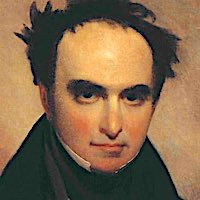 Daniel Webster Daniel WebsterAmerica's greatest orator Two-time US Secretary of State and presidential candidate, leading Supreme Court attorney, and Senator; Daniel Webster was named as one of the five greatest senators in history, gave "the most eloquent speech ever delivered in Congress,” and his style—for at least 75 years—became the main exercise for students of oratory. A key supporter of President John Quincy Adams and leading opponent of Andrew Jackson, historians consider him instrumental in maintaining United States union over the Southern efforts of creating a states-rights Confederacy. In John F. Kennedy’s book Profiles in Courage, he described one of his positions risking denunciations and his presidential ambitions, one of the “greatest acts of courageous principle in the history of the Senate.” On the other hand however, he supported wars against Native Americans, the Fugitive Slave Act of 1850, war against England because they wouldn’t return fugitive slaves, and opposed the Dorr Rebellion. In many ways, Webster represents the art of compromise—both the positive and negative aspects of giving away something important for something even more important. For example, he supported the Fugitive Slave Act of 1850 which made it easier for slave owners to recapture runaway slaves; but, in exchange, California was admitted into the Union as a non-slave state tipping the balance to more non-slave than slave states. |
| Dante | 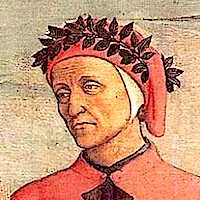 Dante DanteDante fell madly in love with Beatrice when she was only 8 years old and described his passion as “a God stronger than I who came and ruled me.” This unrequited love lasted through her marriage to another, her death at only 24, and throughout Dante’s life. It inspired his great work, The Divine Comedy now considered the greatest book in the Italian language and most important Middle Ages poem. Dante’s politics led to his exile, loss of citizenship and property, 15 years of poverty-stricken wandering, and a decree for him to be arrested and burned alive. His vivid descriptions of hell were based on personal experience and his writings saved him from the intensity of his suffering as it helped establish modern literature. Florence apologized for his exile 700 years later. |
| Dārikapa | 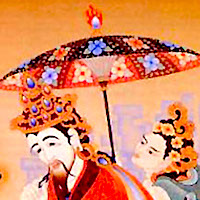 Dārikapa DārikapaMahasiddha #77 In a somewhat typical story, this wealthy and powerful king enjoying all the pleasures of his privilege meets an enlightened master, realizes the emptiness of his life, and gives away everything to follow his guru. In this case though, he also gives away his body and freedom which his teacher sells to a famous prostitute, Darima. After many years of serving as her slave and practicing his dharma; Darima, her many attendants, guards, slaves, and customers became disciples who he taught and served for many years. Mahasiddha #77 |
| Dave Marsh | 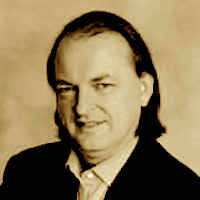 Dave Marsh Dave MarshMusic critic, magazine editor, and author; Marsh mainly focuses his work on musicians and music and became a Rock and Roll Hall of Fame committee member. |
| David Antonini |  David Antonini David AntoniniClemson University, Philosophy and Religious Studies |
| David Avrom Bell | 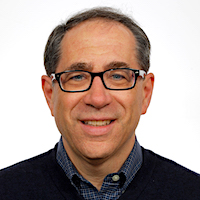 David Avrom Bell David Avrom BellAmerican French history historian |
| David Chadwick | 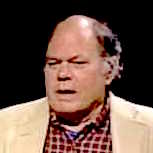 David Chadwick David ChadwickClose student of Suzuki Roshi |
| David Grayson | 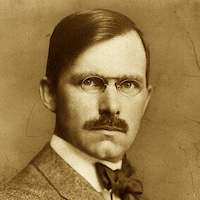 David Grayson David GraysonOne of the most insightful journalists, historians, and biographers of his time A pioneering muckraker in the late 1800's, Grayson's book, Adventures in Contentment became popular worldwide selling millions of copies. The Atlanta Race Riot in 1906 inspired him to write a book called Following the Color Line which was the first in-depth and influential examination of the racial divide in America. It became knows as, "the best account of race relations in the South." A close friend and supporter of president Woodrow Wilson, he traveled to Europe on his behalf and became his press secretary during the peace negotiations after World War I. He later published 15 books about Wilson, two of which won Pulitzer Prizes. Buildings at the University of Massachusetts, Michigan State University, and an Elementary School in Waterford, Michigan are named after him. |
| David Hume | 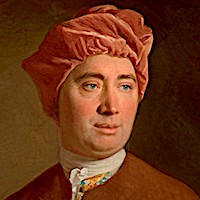 David Hume David Hume "One of the most important philosophers" Hume's father died when he was two and his mother encouraged his education which developed him into a true polymath in philosophy, mathematics, science, economics, history and literature. His writing career began when he was only 16 but—popular with the ladies and aristocratic society—he kept most of his controversial, influential writings secret and they weren't printed until after his death. Mainly recognized as an historian during his life, his post-mortemly published philosophical works became a major influence on thought leaders like Francis Bacon, Descartes, Newton, Locke, Berkeley, Adam Smith and all who came after them. Kant said that Hume woke him up from his "dogmatic slumbers." |